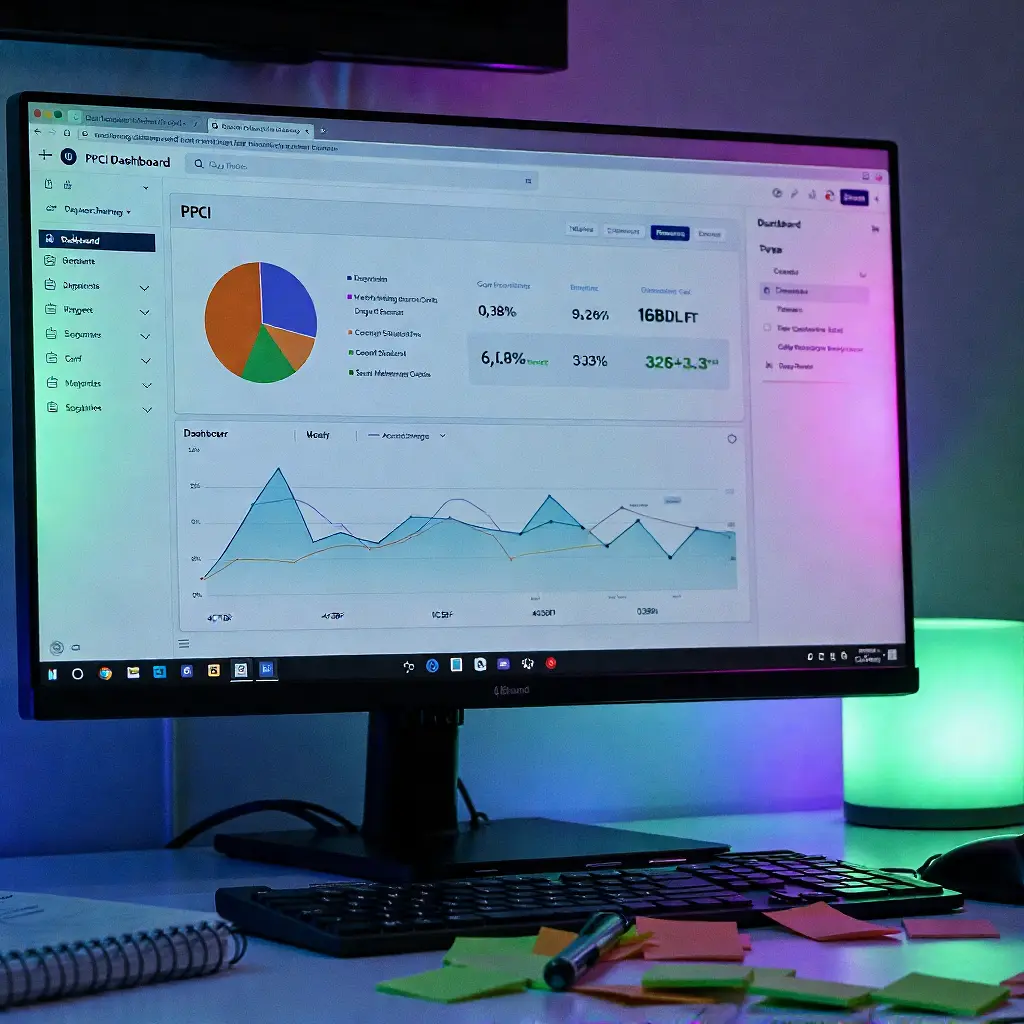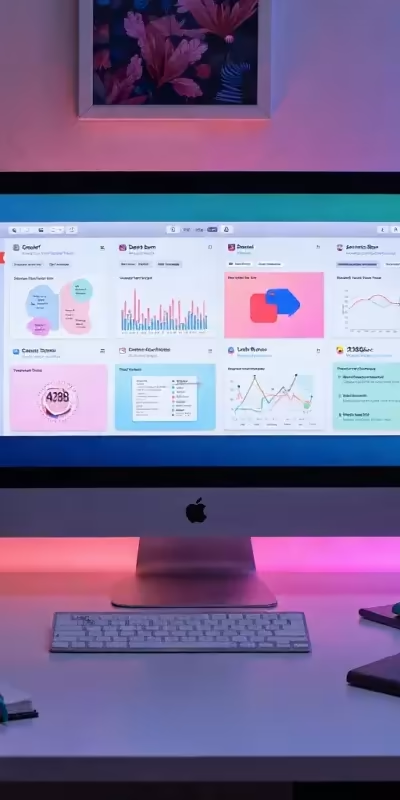Table of Contents
drug rehab PPC campaigns
Enhance Your PPC Strategy with Our Exclusive Checklist!
Introduction
The importance of PPC advertising for drug rehab centers cannot be overstated. In an industry where reaching the right audience can mean the difference between helping someone start their recovery journey and missing a critical opportunity, PPC advertising stands as a crucial tool. For drug rehab centers, the competition is fierce, and traditional marketing methods may not always provide the desired results. This is where PPC advertising steps in, offering a targeted, cost-effective solution to reach individuals in need of addiction treatment.
PPC Advertising’s Role in Drug Rehab Centers
PPC advertising allows drug rehab centers to appear prominently in search engine results, targeting specific keywords related to addiction treatment and recovery. By bidding on relevant keywords, rehab centers can ensure their ads are shown to individuals actively searching for help. This targeted approach maximizes the chances of connecting with potential patients, thus increasing admissions and, ultimately, revenue.
How Keyword Selection Impacts PPC Success
Selecting the right keywords is pivotal to the success of any PPC campaign. For drug rehab centers, keyword selection is not just about choosing terms that get clicks but finding those that lead to meaningful conversions. Here’s how effective keyword selection can drive success:
- Reaching the Right Audience: Keywords should align with what potential patients or their families are searching for. Terms like “addiction treatment centers,” “drug rehab programs,” and “help for drug addiction” are likely to attract individuals in need of immediate assistance.
- Maximizing ROI: By focusing on high-intent keywords, rehab centers can ensure their ad spend is going towards clicks that are more likely to convert. This means less money wasted on uninterested audiences and more on potential patients.
- Staying Competitive: The drug rehab industry is competitive. Using effective strategies and tools for PPC keyword research can help rehab centers stay ahead. Tools like Google Keyword Planner and SEMrush can provide insights into keyword performance and competition levels.
Effective Strategies for Keyword Research
Implementing a robust keyword research strategy is essential. Here are some steps drug rehab centers can take:
- Identify Core Keywords: Start with broad terms related to drug rehab and addiction treatment. Use these as a base to find more specific, high-intent keywords.
- Use PPC Keyword Research Tools: Tools like Ahrefs, Moz, and Google Keyword Planner can help identify keywords that have a high search volume but lower competition.
- Analyze Competitor Keywords: Look at what keywords competitors are bidding on. This can provide insights into which keywords are driving traffic to their sites.
- Incorporate Longtail Keywords: Longtail keywords, such as “how to select PPC keywords for drug rehab centers” or “optimizing PPC campaigns for addiction treatment,” are less competitive and often lead to higher conversion rates due to their specificity.
Selecting the right keywords for your PPC campaigns can significantly impact your drug rehab center’s ability to reach those in need. By focusing on targeted, high-intent keywords, you can improve your PPC outcomes and maximize your ROI. It’s not just about marketing; it’s about building relationships and providing ongoing support.
Start implementing these tips to see real results in your PPC advertising efforts.
Contact us today!Understanding PPC Advertising for Drug Rehab Centers
Pay-Per-Click (PPC) advertising is a powerful tool for drug rehab centers to connect with individuals seeking addiction treatment. In an industry where timing and precision are crucial, PPC advertising offers a targeted, measurable, and effective approach to reach potential patients at the exact moment they are searching for help.
What is PPC Advertising?
PPC advertising is an online marketing model where advertisers pay a fee each time their ad is clicked. Essentially, it’s a way of buying visits to your site rather than attempting to earn those visits organically. PPC ads appear on search engines, social media platforms, and various websites. When executed correctly, PPC can deliver highly relevant traffic to your site, which can result in increased conversions and admissions for drug rehab centers.
Why PPC is Crucial for Drug Rehab Centers
For drug rehab centers, the ability to reach individuals actively seeking help is vital. PPC advertising provides several advantages:
- Immediate Visibility: Unlike organic search engine optimization (SEO), which can take months to yield results, PPC ads can generate immediate visibility and traffic.
- Targeted Audience: PPC allows you to target specific demographics, geographical areas, and search queries, ensuring your ads are seen by those most likely to need your services.
- Cost Control: With PPC, you set your budget and only pay when someone clicks on your ad. This level of control allows for effective budget management and ROI optimization.
- Measurable Results: PPC platforms provide detailed analytics that help you understand which ads and keywords are performing best. This data is invaluable for refining your campaigns and improving targeting.
The Role of Keywords in PPC Campaigns
The success of a PPC campaign largely hinges on keyword selection. Keywords are the terms and phrases that potential patients type into search engines when looking for addiction treatment. Choosing the right keywords ensures that your ads appear in front of a relevant audience, increasing the likelihood of clicks and conversions.
Effective Keyword Strategies for Drug Rehab PPC
- Keyword Research: Utilize PPC keyword research tools like Google Keyword Planner, Ahrefs, and SEMrush to identify high-volume, low-competition keywords related to addiction treatment. Keywords such as “drug rehab centers,” “addiction treatment programs,” and “rehab near me” are essential.
- Targeting Longtail Keywords: Longtail keywords like “how to select PPC keywords for drug rehab centers” or “optimizing PPC campaigns for addiction treatment” are less competitive and more specific. They often result in higher conversion rates because they match the user’s search intent more precisely.
- Incorporating LSI Keywords: Latent Semantic Indexing (LSI) keywords are terms related to your primary keywords. Including LSI keywords like “drug rehabilitation marketing” and “PPC for addiction services” helps improve your ad’s relevance and reach.
- Negative Keywords: Implementing negative keywords prevents your ads from showing up in irrelevant searches. For example, excluding terms like “free rehab” can help ensure your budget is spent on clicks that are more likely to convert.
Conclusion
PPC advertising is a critical component of a successful marketing strategy for drug rehab centers. By understanding its role and effectively leveraging keyword selection, rehab centers can improve their visibility, attract the right audience, and maximize their ROI.

Start refining your keyword selection to see immediate improvements in your PPC campaigns.
Let’s make a difference!Keyword Research Strategies
Effective keyword research is the cornerstone of successful PPC advertising for drug rehab centers. Without the right keywords, even the best-crafted ad campaigns can fall short of reaching the intended audience. This chapter delves into practical keyword research strategies, focusing on the tools and techniques that can help drug rehab centers maximize their PPC advertising efforts.
Using Keyword Research Tools
Best Tools for PPC Keyword Research
Several tools can help identify the most effective keywords for PPC campaigns. Here are some of the best options:
- Google Keyword Planner: This tool provides keyword suggestions, search volume data, and competition levels, making it a fundamental resource for PPC keyword research.
- SEMrush: SEMrush offers detailed insights into keyword performance, competitor analysis, and keyword difficulty, helping you identify high-potential keywords.
- Ahrefs: Known for its extensive keyword database, Ahrefs can help you discover longtail keywords and analyze keyword trends over time.
- Moz Keyword Explorer: This tool provides comprehensive keyword suggestions and insights into keyword difficulty and potential.
How to Analyze Keyword Data
Analyzing keyword data involves several steps:
- Search Volume: Assess how often a keyword is searched. High search volume keywords can drive more traffic, but they often come with high competition.
- Competition: Understand how many advertisers are bidding on the same keyword. Lower competition keywords might offer better ROI.
- Relevance: Ensure the keyword aligns with the intent of your target audience. Keywords must be relevant to the services offered by your rehab center.
- Cost-Per-Click (CPC): Evaluate the cost of bidding on a keyword. High CPC keywords can be expensive, so balance them with lower-cost options to manage your budget effectively.
Identifying Targeted Keywords
Characteristics of Effective PPC Keywords
Effective PPC keywords share common characteristics:
- High Intent: Keywords should reflect the intent of users ready to take action. Terms like “drug rehab centers near me” indicate a high likelihood of conversion.
- Relevance: The keywords must closely match the services provided by your rehab center to attract the right audience.
- Specificity: Specific keywords can help narrow down the audience to those more likely to convert, such as “inpatient addiction treatment centers.”
How to Find High-ROI Keywords
Finding high-ROI keywords requires a mix of research and analysis:
- Use Analytics Tools: Tools like Google Analytics can show which keywords are driving traffic and conversions.
- Competitor Analysis: Look at the keywords competitors are using successfully. Tools like SEMrush can help identify these keywords.
- Customer Feedback: Incorporate terms that actual patients and their families use when discussing their needs and experiences.
Longtail Keywords and Their Importance
Benefits of Using Longtail Keywords
Longtail keywords are longer and more specific keyword phrases. They are crucial for several reasons:
- Lower Competition: Longtail keywords typically have less competition, making it easier and cheaper to bid on them.
- Higher Conversion Rates: These keywords are often used by searchers with clear intent, leading to higher conversion rates.
- Cost-Effective: They can provide a high ROI due to lower CPCs and higher relevance to search queries.
Examples of Effective Longtail Keywords for Drug Rehab PPC
- “How to select PPC keywords for drug rehab centers”
- “Optimizing PPC campaigns for addiction treatment”
- “Keyword research strategies for rehab marketing”
- “Effective keyword targeting in drug rehab PPC”
- “Boosting ROI with targeted PPC advertising for drug rehab”
- “Comprehensive guide to PPC keyword selection for addiction treatment centers”
Conclusion
Effective keyword research is essential for maximizing the ROI of your PPC campaigns. By leveraging the right tools, identifying high-intent keywords, and utilizing longtail keywords, drug rehab centers can significantly improve their PPC outcomes.

Take the first step to enhance your PPC advertising efforts today.
Start today!Effective Keyword Optimization Techniques
Effective keyword optimization is essential for running successful PPC advertising campaigns for drug rehab centers. By aligning keywords with user intent and incorporating LSI keywords, rehab centers can improve targeting, enhance ad relevance, and maximize their ROI. This chapter explores these techniques in detail.
Aligning Keywords with User Intent
Understanding user search behavior is critical to selecting the right keywords. Knowing what potential patients or their families are searching for can make all the difference in attracting the right audience.
User intent can generally be classified into three categories: informational, navigational, and transactional.
- Informational Intent: Users are seeking information or answers to questions. Keywords like “signs of drug addiction” or “how to help someone with addiction” fall into this category.
- Navigational Intent: Users are looking for a specific website or page. For example, “XYZ Rehab Center contact” or “XYZ Rehab Center reviews.”
- Transactional Intent: Users are ready to take action, such as making a call or scheduling a visit. Keywords such as “best drug rehab centers near me” or “inpatient addiction treatment” indicate high transactional intent.
How to Match Keywords to User Intent
- Identify Intent Types: Start by categorizing potential keywords based on the type of intent they represent.
- Use Specific Keywords: For high transactional intent, use specific and detailed keywords. These are more likely to attract users ready to make a decision.
- Optimize Ad Copy: Ensure your ad copy aligns with the intent of the keywords. For example, an ad targeting “best drug rehab centers” should emphasize your center’s top-tier services and success rates.
Understanding User Search Behavior
Incorporating LSI Keywords
Latent Semantic Indexing (LSI) keywords are related terms that add context to your primary keywords. They help search engines understand the content of your ads and landing pages better, leading to improved relevance and ranking.
What are LSI Keywords?
LSI keywords are words and phrases related to your main keyword. For example, if your primary keyword is “drug rehab,” related LSI keywords might include “addiction treatment,” “rehabilitation centers,” “substance abuse recovery,” and “detox programs.”
How to Use LSI Keywords in PPC Campaigns
- Expand Keyword Lists: Use tools like Google’s related searches, SEMrush, and Ahrefs to identify LSI keywords related to your primary keywords.
- Enhance Ad Relevance: Incorporate LSI keywords into your ad copy and landing pages. This helps improve the relevance of your ads and can lead to higher Quality Scores.
- Optimize Landing Pages: Ensure your landing pages contain LSI keywords naturally within the content. This can help improve your page’s relevance and rank in search results.
Example of Effective Keyword Optimization
Let’s say your primary keyword is “drug rehab centers.” By incorporating LSI keywords like “addiction treatment programs,” “substance abuse recovery,” and “rehabilitation services,” you create a more comprehensive and relevant ad campaign. This not only improves your chances of appearing in search results but also aligns better with what users are searching for.
Conclusion
Optimizing your PPC campaigns with the right keywords and understanding user intent can significantly enhance your advertising effectiveness. Incorporating LSI keywords further refines your targeting, making your ads more relevant and improving overall performance.e informed decisions to improve them.

Start optimizing your campaigns for better results now.
Let’s work together!Improving PPC Targeting and ROI
For drug rehab centers, optimizing PPC targeting and improving ROI are essential to maximize the effectiveness of their advertising campaigns. By carefully analyzing PPC performance and implementing advanced keyword optimization strategies, rehab centers can ensure their ads reach the right audience, thereby increasing admissions and reducing wasted ad spend.
Analyzing PPC Performance
To improve PPC targeting, it is crucial to track key metrics and adjust strategies based on performance data. Here’s how to do it effectively:
Key Metrics to Track in PPC Campaigns
- Click-Through Rate (CTR): CTR measures how often people click on your ad after seeing it. A high CTR indicates that your ad is relevant to the audience.
- Conversion Rate: This metric shows the percentage of clicks that result in a desired action, such as filling out a contact form or calling your center.
- Cost-Per-Click (CPC): CPC is the amount you pay each time someone clicks on your ad. Monitoring CPC helps manage your budget effectively.
- Cost-Per-Conversion: This metric calculates how much you spend to acquire a conversion. Lowering this cost improves ROI.
- Quality Score: Google assigns a Quality Score based on the relevance of your ads and keywords. Higher scores can lower your CPC and improve ad placements.
How to Adjust Keywords Based on Performance Data
- Identify High-Performing Keywords: Focus on keywords with high CTRs and conversion rates. Allocate more budget to these keywords to maximize ROI.
- Pause Underperforming Keywords: Stop using keywords with low CTRs or high CPCs that do not lead to conversions.
- Refine Match Types: Use exact match keywords for highly targeted campaigns and broad match for exploratory campaigns to find new keyword opportunities.
- Adjust Bids: Increase bids on high-performing keywords to improve ad position and decrease bids on underperforming keywords to manage costs.
Advanced Strategies for Keyword Optimization
Advanced keyword optimization strategies can further refine PPC targeting and enhance ROI.
A/B Testing Keywords
- Create Variations: Develop different versions of ads with varying keywords to test which ones perform better.
- Measure Results: Track the performance of each ad variation in terms of CTR, conversion rate, and CPC.
- Optimize Based on Data: Use the insights gained from A/B testing to focus on the best-performing keywords and ad copies.
Using Negative Keywords to Improve Targeting
- Identify Irrelevant Searches: Analyze search query reports to find terms that are triggering your ads but are not relevant to your services.
- Add Negative Keywords: Incorporate these terms as negative keywords to prevent your ads from appearing in unrelated searches, thus saving budget and improving targeting.
- Regularly Update Negative Keywords: Continuously review and update your negative keyword list to adapt to changing search behaviors.
Example
A drug rehab center might find that terms like “free rehab programs” attract many clicks but few conversions. By adding “free” as a negative keyword, the center can focus on attracting individuals who are more likely to afford their services, thus improving ROI.
Conclusion
Improving PPC targeting and ROI for drug rehab centers involves a combination of tracking key performance metrics and implementing advanced keyword optimization techniques. By analyzing PPC performance and making data-driven adjustments, rehab centers can achieve more effective and cost-efficient advertising campaigns.

Begin refining your keyword strategy to enhance targeting and ROI today.
Contact us today!Conclusion
Selecting the right keywords is crucial for the success of PPC advertising campaigns for drug rehab centers. Effective keyword selection not only improves targeting but also maximizes ROI by ensuring that ads reach the most relevant audience. This chapter recaps key strategies and provides final tips to help drug rehab centers optimize their PPC campaigns.
Recap of Keyword Selection Strategies
- Understand User Intent: The foundation of keyword selection is understanding what potential patients or their families are searching for. By categorizing keywords into informational, navigational, and transactional intents, rehab centers can tailor their PPC campaigns to meet specific needs.
- Use PPC Keyword Research Tools: Tools like Google Keyword Planner, SEMrush, Ahrefs, and Moz Keyword Explorer are essential for identifying high-potential keywords. These tools provide insights into search volume, competition, and keyword difficulty, helping you choose the most effective keywords.
- Incorporate Longtail Keywords: Longtail keywords, such as “how to select PPC keywords for drug rehab centers” or “optimizing PPC campaigns for addiction treatment,” are less competitive and more specific. They often result in higher conversion rates due to their targeted nature.
- Implement LSI Keywords: Latent Semantic Indexing (LSI) keywords add context to your primary keywords, improving ad relevance. Examples include “drug rehabilitation marketing” and “PPC for addiction services.” Using LSI keywords helps search engines understand the content better, leading to improved rankings.
- Analyze and Adjust Keywords: Regularly review the performance of your keywords using metrics like Click-Through Rate (CTR), Conversion Rate, Cost-Per-Click (CPC), and Quality Score. Adjust your keyword strategy based on performance data to improve targeting and reduce costs.
Final Tips for Maximizing ROI in Drug Rehab PPC Advertising
- Refine Ad Copy: Ensure that your ad copy aligns with the keywords and user intent. Clear, compelling ad copy that addresses the user’s needs can significantly improve CTR and conversion rates.
- Optimize Landing Pages: Your landing pages should be relevant to the keywords and ad copy. Include LSI keywords naturally within the content and ensure a smooth user experience to increase conversions.
- Utilize Negative Keywords: Negative keywords prevent your ads from appearing in irrelevant searches, saving your budget for more relevant clicks. Regularly update your negative keyword list based on search query reports.
- A/B Test Ads: Continuously test different ad variations to identify what works best. A/B testing helps optimize ad performance by comparing different headlines, descriptions, and keyword combinations.
- Monitor Competitors: Keep an eye on your competitors’ keyword strategies. Tools like SEMrush can provide insights into which keywords your competitors are bidding on and their ad performance. Use this information to refine your own strategy.
- Stay Updated: The digital marketing landscape is constantly evolving. Stay informed about the latest trends and updates in PPC advertising to keep your campaigns competitive.
Conclusion
Mastering keyword selection for PPC advertising in the drug rehab industry is essential for maximizing ROI. By understanding user intent, utilizing keyword research tools, incorporating longtail and LSI keywords, and continuously analyzing and adjusting your strategy, you can significantly improve your PPC outcomes.
Questions You Might Ponder
How can I determine which keywords have the highest intent?
To determine high-intent keywords, look for terms that indicate a readiness to take action, such as “inpatient addiction treatment centers” or “drug rehab centers near me.” Utilize tools like Google Keyword Planner to analyze search volume and competition. Additionally, review your website’s analytics to see which keywords are currently driving conversions and align with your target audience’s needs.
What are some common mistakes to avoid in PPC keyword selection?
Common mistakes in PPC keyword selection include targeting overly broad keywords, not using negative keywords, ignoring longtail keywords, and failing to regularly update and refine keyword lists. Broad keywords can attract irrelevant traffic, while neglecting negative keywords can lead to wasted ad spend. Regular analysis and adjustments ensure your keywords remain effective and aligned with your goals.
How frequently should I update my PPC keyword strategy?
Updating your PPC keyword strategy should be an ongoing process. Regularly review performance metrics such as CTR, conversion rates, and CPC monthly or quarterly. Additionally, stay updated on industry trends and changes in search behavior to make timely adjustments. Frequent analysis and refinement help maintain the effectiveness and relevance of your campaigns.
What are the benefits of using negative keywords in PPC campaigns?
Negative keywords prevent your ads from appearing in irrelevant searches, saving budget for more relevant clicks. For instance, excluding terms like “free rehab” ensures your ads target individuals who are more likely to afford your services. This improves your campaign’s efficiency, enhances targeting accuracy, and ultimately boosts your ROI by focusing on high-intent traffic.
How can I effectively use A/B testing in my PPC campaigns?
A/B testing involves creating different ad variations with varying keywords, headlines, or descriptions to identify which performs better. Track metrics such as CTR and conversion rates to determine the most effective version. Regularly implement A/B tests to optimize ad copy and keyword selection, ensuring continuous improvement and better campaign performance.
How will you enhance your PPC keyword strategy today? Start implementing these tips to optimize your campaigns and improve your ROI.

